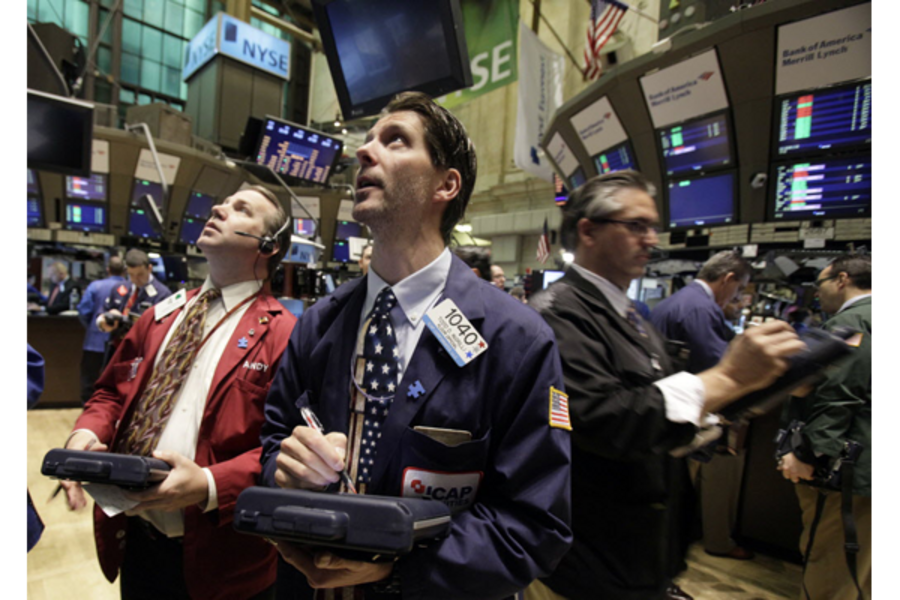Michael Lewis on the dangers of high-frequency trading
He’s scrutinized subprime mortgage securities, the statistical science of sports, and financial bubbles around the world.
Now Michael Lewis is turning his attention to Wall Street in a new book out Monday, “Flash Boys: A Wall Street Revolt.”
His verdict? Wall Street is rigged.
“The United States stock market, the most iconic market in global capitalism, is rigged,” Lewis said on a Sunday evening appearance on CBS’s “60 Minutes.”
“If it wasn’t complicated, it wouldn’t be allowed to happen. The complexity disguises what is happening. If it’s so complicated you can’t understand it, then you can’t question it.”
In the book, Lewis trains his focus on high-frequency trading, a type of rapid computerized trading that accounts for about half of the shares traded in the US.
This type of trading uses powerful computers that can move in and out of stocks within a fraction of a second, giving high-frequency traders an extra millisecond of time to “beat” other investors in a trade. This allows high-frequency traders to buy stocks and quickly sell them back at higher prices – a fraction of a millisecond that can reap hundreds of millions of dollars.
"The insiders are able to move faster than you," Lewis said on "60 Minutes.” "They're able to see your order and play it against other orders in ways that you don't understand. They're able to front run your order."
As The Wall Street Journal noted, high-frequency trading is a contentious part of the investing community.
“Critics say this practice has been one of the contributors to the stock market’s heightened volatility and instability in recent years and has led some to wonder if, or how, these traders should face more regulatory scrutiny,” the paper reported. “Mr. Lewis joins a long list of voices that have expressed concerns about high-speed trading. The debate drew mainstream attention in May 2010 during the 'flash crash,' when the Dow Jones Industrial Average plunged nearly 1000 points in the matter of minutes before rebounding quickly.”
“Flash Boys” follows the story of Brad Katsuyama, a former trader at the Royal Bank of Canada who created a system that effectively slows down high-frequency traders and their powerful computers. That system, a platform called IEX, is designed to trip up “predatory” traders.
Katsuyama, a young Canadian who formerly made millions as a trader, is the unlikely hero in the story, Lewis told The New York Times.
“Why is this kid, why is he able to all of a sudden sit at the center of the American stock market?” Mr. Lewis said. “And the answer is, when someone walks in the door who is actually trustworthy, he has enormous power. And this is the story of trying to restore trust to the financial markets.”








